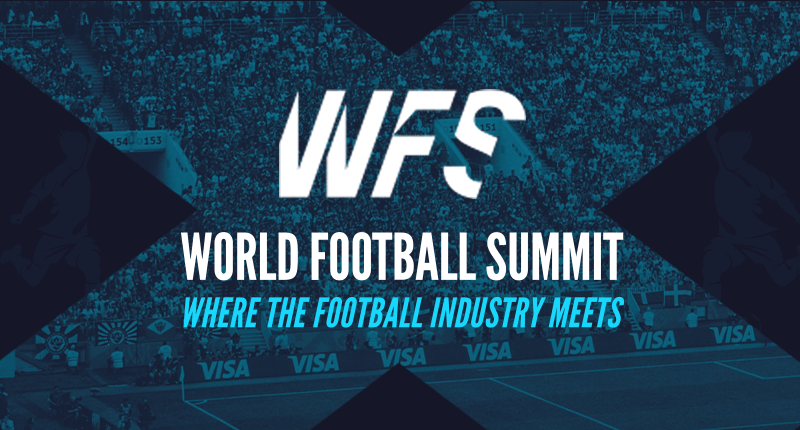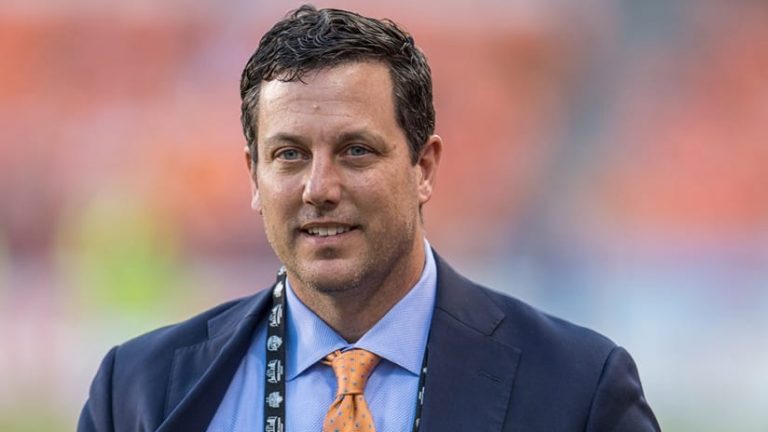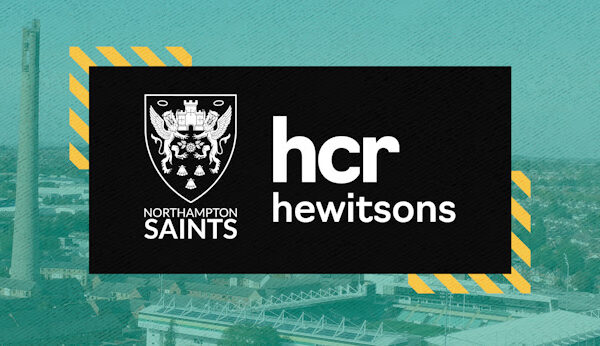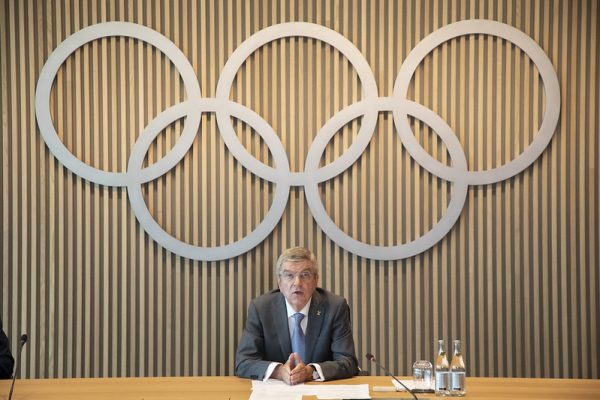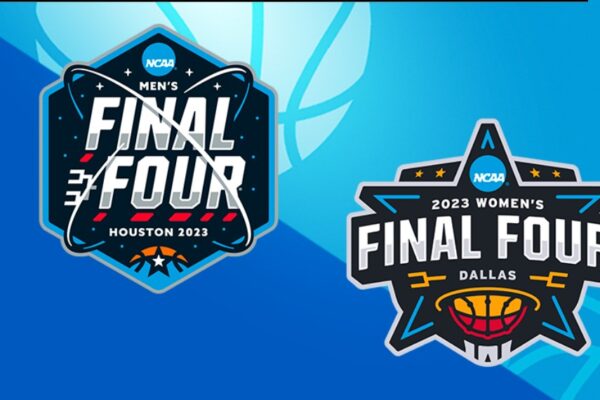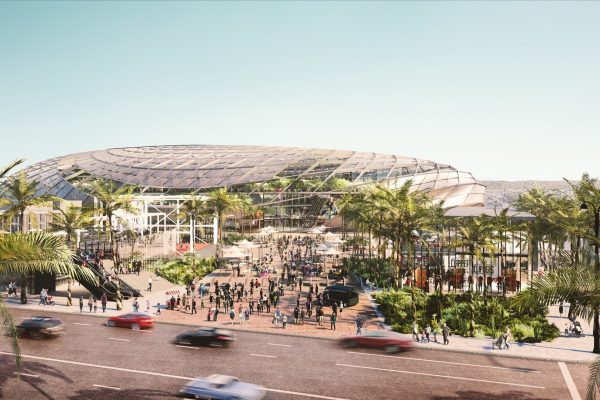Houston’s Bid Committee is working relentlessly to get the 2026 FIFA World Cup to town. The Playknox spoke with the man who’s leading these efforts – Chris Canetti who is the President of the Houston 2026 World Cup Bid Committee. He previously spent 19 seasons as an MLS club executive in New York and Houston. Canetti was with the Houston Dynamo for 13 years and served as club President for eight years. When he stepped down in October 2018, he was the longest tenured club President in MLS.
Please tell us about your journey so far within the sports realm.
I have been working in the sports industry for 28 years now and the last 22 years have been spent working in the soccer industry. The last three years I’ve been in my current role as president of the Houston 2026 World Cup Bid Committee, and previous 13 seasons, I was also here in Houston working with the Major League Soccer Club here called the Houston Dynamo. So I was president of that club, from 2010 through 2018.
And prior to that, I worked in Major League Soccer in the New York market with the team that was originally called the New York, New Jersey Metro stars and now are known as The New York Red Bulls. So it’s been 22 years in soccer and three with the Bid Committee , 19 and Major League Soccer split 13 in Houston and six in New York. And prior to that, my first 6 years were in Minor League Baseball. Baseball was my first love. I played that sport in college and was fortunate to get my start in professional sports in baseball in basically my hometown and that’s where I got my foot in the door and everything started and then switched over to Major League Soccer and in New from New Haven to New York in 2000.
How challenging is it to compete against 16 other cities?
Yes there is a lot of competition here in the United States for this World Cup bid. There are 17 cities who are fighting for 10 spots and all of these cities are special in their own way. They’re all great cities. They all have a lot of wonderful things to offer. So in that regard, this is a big challenge for all of us to stand up and be one of the top 10 cities at the end of the day, but we think that Houston is definitely a top 10 city. It brings so many tremendous qualities to the table and we know that it would deliver a very positive result for FIFA if we were selected as the host city for the World Cup in 2026.
We’re very confident in ourselves, in our position, but we take nothing for granted because we know the competition is so stiff. So we’ve been working very hard for the last three years on this bid, just to try to stand out from the competition and show FIFA why Houston would be such a special location to serve the host city.
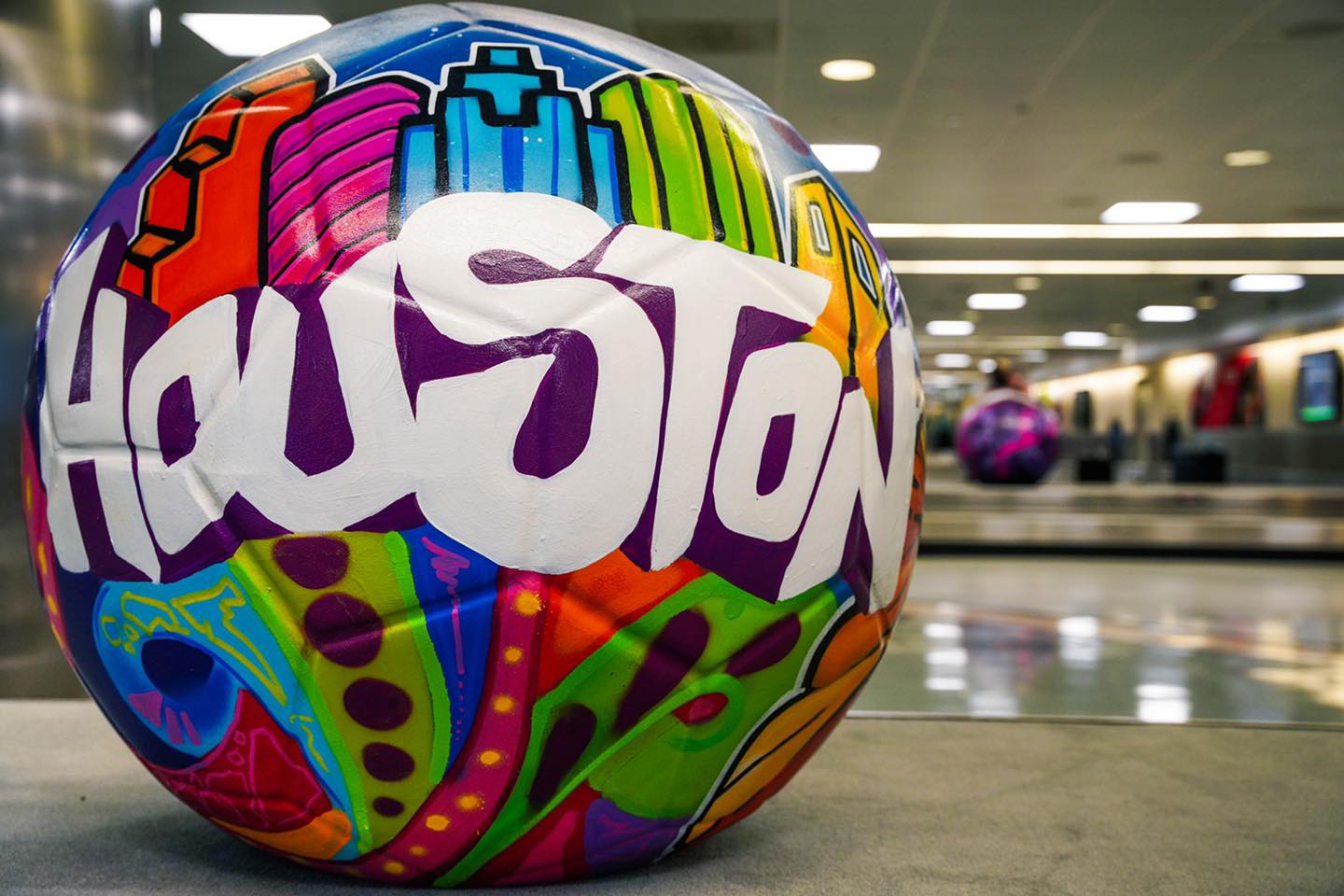
What make Houston a perfect host city?
There’s a lot of good attributes fortunately for us. Number one, we’ve hosted more major sporting events than any other candidate host city since 2004 from Super Bowls to NCAA, Final Fours to Major Soccer events that have come through like Copa America Centenario. So our city has been there, done that when it comes to hosting these events. We’ve got tremendous experience and a track record in knowing how to organize and execute these events for promoters so that they can leave town feeling very positive about a successful event being held. So our track record and experience is first and foremost.
Secondly, we have what we call an operational readiness. On top of that experience we have tremendous infrastructure in place, whether it’s our facilities, from our two international airports to our vast array of hotels and conference centres to the venue itself – NRG park with a world class state of the art 70,000 seat stadium, a large conference centre and a small arena right there on site, not far from the downtown center core of Houston. And our stadium is fortunate enough to have a retractable roof on it as well which is great to protect our fans and our players from the weather and to ensure that there are delays or cancellations from thunderstorms or anything that can come through weather wise. We are also the most diverse city in North America. Houston is truly an international spot. So we think it’s a great match to host the world’s event here in such an international city where the culture for the sport is very strong and the desire from our residents to have this event is very, very strong and they’re very supportive. And we’ve also got a tremendous strategic plan as well. We’ve worked very hard over the last couple years to try to find ways that Houston can stand out from the competition and we wanted to find the unique things about our city that would bring value to FIFA and hosting a World Cup. So we have this thing called the spirit of Houston, which is this intangible force of our community that really gets behind these kinds of things in a big way and pushes them to success because the city is so united and invested in these types of events and activities.
But our strategy is really based around legacy and how we can use the World Cup and when the final whistle blows and the games have moved out, the event has made a positive impact on our local community here. So our legacy strategy is focused on three pillars. It’s on growing the game of soccer, on defending human rights and protecting the environment. And we’ve set up an organization called the ‘Soccer Innovation Institute’ that is designed to bring together all the unique traits and assets from our city such as the largest medical center in the world, the energy capital world, NASA and many others on how we can use all of these things under one umbrella to achieve our goals of growing the game, defending human rights and protecting the environment and all of those things will add up to our legacy and make a big impact. So those are the things that really I think makes Houston special. We are also the fourth largest city in the United States and the largest in Texas and not everybody knows that. So a fantastic, large city with a great experience and hosting major events, tremendous infrastructure and other things in place that make us operationally relevant ready, a diverse community and an outstanding Strategic Plan built on legacy.
What have been the challenges so far because of COVID?
Yeah, certainly COVID impacted the process. We are more than three years into this now but I think we expected this to be a one and a half at most, maybe two year process. So you know COVID impacted everybody to the point FIFA was significantly impacted and had a lot of things to deal with when COVID struck. So I think 2026 was moved down the priority list a little bit. And we were all working from home and so on. So there was definitely a delay to the process as a result of COVID but things started to get back on track about a year ago, when we could feel the process really moving again.
Here in Houston we have lots of safety protocols in place around COVID. We have a unified force of all of the venues and events that come together. It’s called the Venues and Events Taskforce that meets regularly to talk about what’s the latest information and news and protocols in place around COVID. So we’re ready to react as a city. We’ve got lots of experts like I said, we are the largest and have the largest medical centre in the world here. So we have a lot of those health experts who are advising and leading and good government structure in place as well. It’s such an evolving thing. Every few weeks things change and policies change. So it’s hard to predict what might be the case in 2026, but as things evolve and change, I’m confident that our community has all the resources in place to be very strong in this area.
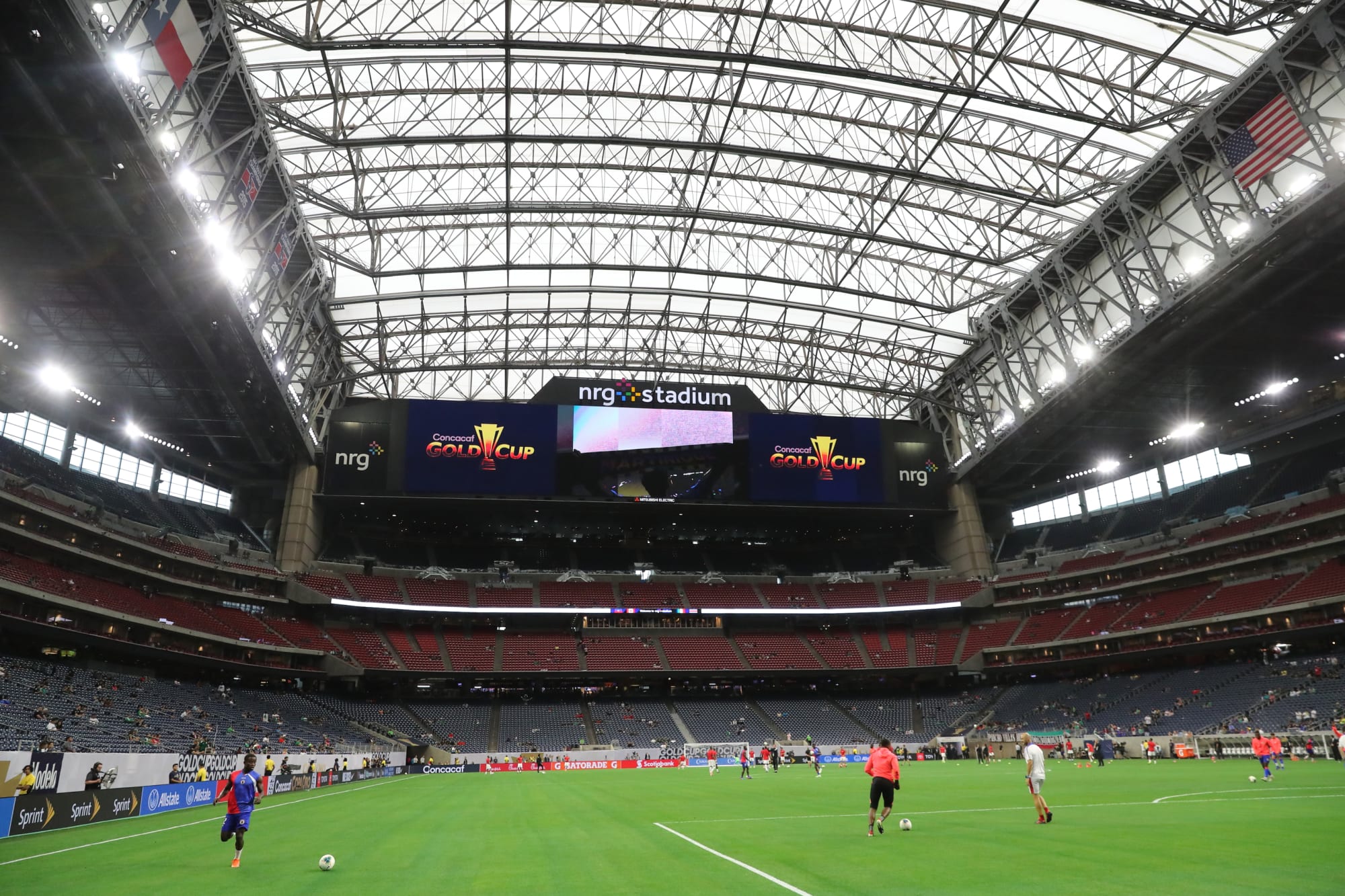
What has been the bidding process like?
It’s been interesting for sure. The first year i.e. in January 2019, we were really in the process of building the Bid Committee that was putting an organization in place, setting it up with non-profit status, bringing a chairman on board a gentleman by the name of John Arnold, who’s a billionaire, philanthropist and businessman here in Houston. Putting our board together so getting all the structure in place just so we can exist as a legal entity and have the type of structure that we needed to do the work that we needed to get done. 2019 was also about fundraising. We had the task of raising the funds privately to cover the costs of operationally of executing this bid. And it was also about strategy. We’ve spent a lot of time thinking and working with consultants.
What our strategy should be to try to differentiate ourselves from the competition. So that was really 2019. And then we came into 2020 thinking that all of that work in 2019 was really going to come together and get us closer to engagement with FIFA and we were going to be rolling all this stuff out and really putting all our cards on the table but obviously COVID set that back. And so 2020 was really more working remotely, lots of zoom calls with FIFA and other entities and then a lot of assignments from afar. Right when people would give us an assignment perhaps about a stadium or about training facilities or other things so we would have to compile a lot of data, information, photos, drawings, maps, if I get just really trying to provide them as much information as we could from afar since they couldn’t come into the market and do their site visits and explore. So that was 2020. And then I guess as we got to 2021 things picked up again, there was definitely a lot more engagement, things happening and that ultimately led to FIFA making its visits to all of the markets this past fall. And they were here in Houston in October. And that was a great opportunity for us to engage one on one and show them our city and go through some key issues.
And now we’re in 2022 and we’re expecting a decision to be made, you know in the next couple of months or so. So there’s still some back and forth in terms of information sharing with FIFA, and very soon we think a decision is coming.
When are you expecting FIFA to make its decision?
All indicators are that decision that’s coming in the next couple of months. So, you know, we’ll see what happens hopefully things stay on track. I think I can speak for myself personally and I think our city and probably even all the other cities, we’re ready. We’re all ready to learn and hopefully move to the next phase as a host city.
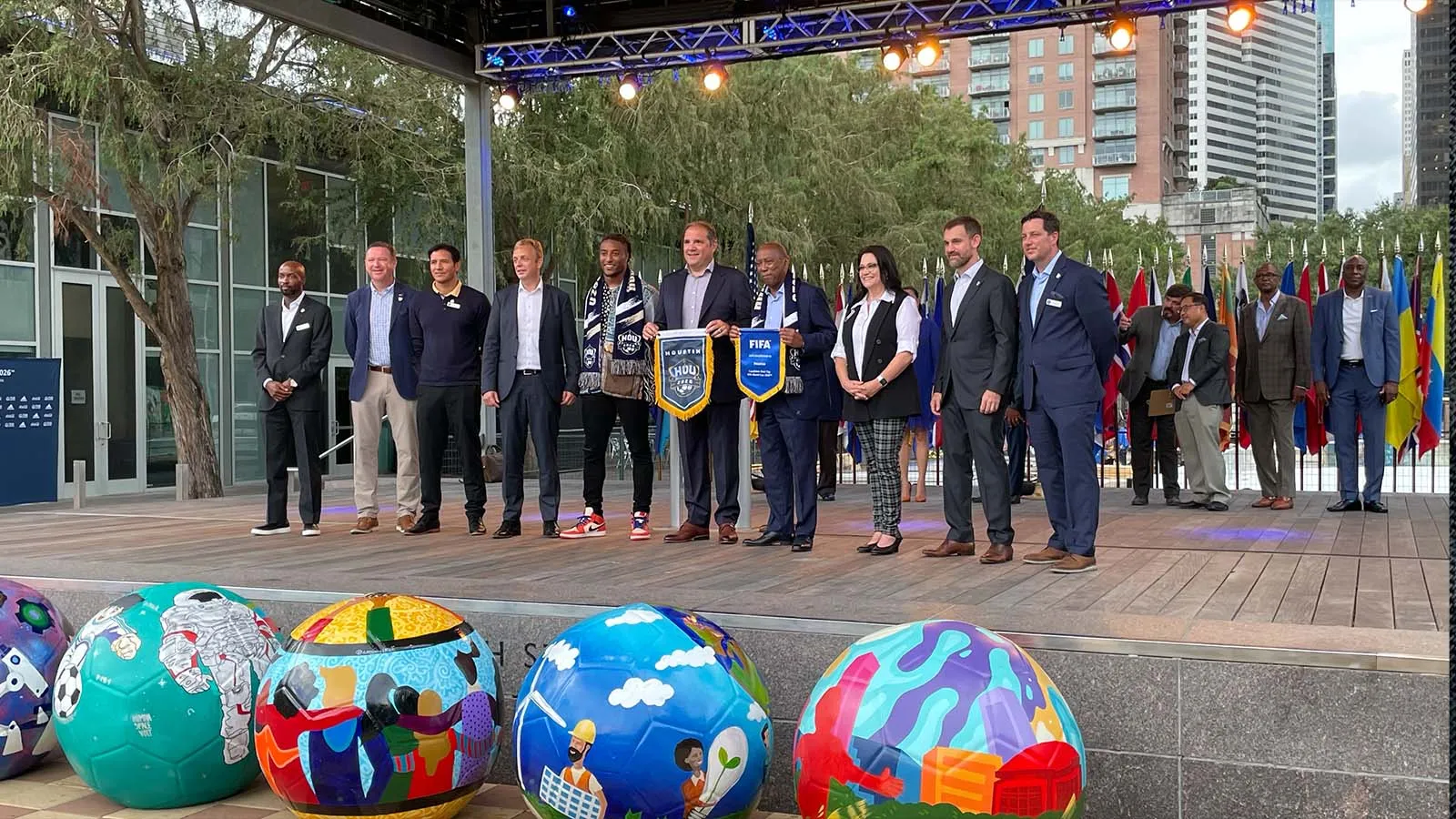
As someone who’s spent more than two decades, what do you think about the inclusion and diversity scenario within the sports industry?
It’s a very important piece to this. Legacy is a key factor here and you know, we want to be sending the correct messages and doing the right things and diversity and inclusion is a major piece of this and when you look at our board, I’m the only employee of the organization but when you look at our board of directors currently it’s quite diverse with male, female and various ethnic backgrounds and races.
It’s quite representative of our communities. The best way to say it is, as I said, Houston is the most diverse region in North America and everything. We’re very proud of that diversity in this city and it’s something that is, we were outwardly and promoted so everything we do is centered around that and is a piece to what we do.
Do you think inclusion and diversity is now being considered as an important part within the sports industry as well?
100% . There’s actually no doubt about that. I think when you look at you know, just the hirings that are going on in big positions in sports. There’s no doubt that people are coming to the table with an initial thought of diversity inclusion being really important. There’s evidence everywhere in every sport here, at least I could speak for the United States better than other places because I’m more tuned in but it is definitely top of people’s minds and part of everybody’s thinking when they set off to build their staffs and to put together teams that have diversity so that there’s lots of different thoughts and ideas that are put on the table to create the best outcomes.


